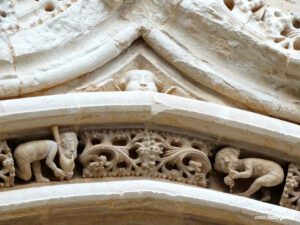The best travel experiences in Italy
Ragusa Ibla: The Heart of Sicilian Baroque
Ragusa Ibla, the historical center of the city of Ragusa, is a true gem of southern Sicily. Known for its Baroque architecture, charming narrow streets, and breathtaking views, Ragusa Ibla offers an unforgettable experience for visitors seeking to explore the beauty and culture of this unique part of Italy. In this article, we will delve into the history, landmarks, and cultural significance of Ragusa Ibla, as well as provide helpful information on how to make the most of your visit. Whether you’re a first-time traveler or a seasoned explorer, this guide will introduce you to the rich heritage and fascinating stories of Ragusa Ibla.
The History of Ragusa Ibla
A City Reborn After the Earthquake
Ragusa Ibla’s history dates back to ancient times, but it was in the 17th century that the city truly began to take its modern shape. The region was severely damaged by the 1693 earthquake, which devastated much of southeastern Sicily. After the earthquake, Ragusa Ibla was rebuilt in the Baroque style, and many of its most famous buildings were constructed during this period.
The Baroque architecture that defines Ragusa Ibla today was influenced by the restoration efforts of local architects, who used the principles of this artistic style to design churches, palaces, and public spaces. Ragusa Ibla was declared a UNESCO World Heritage site in 2002, along with other Baroque towns in the Val di Noto, for its remarkable preservation of Baroque architecture.
A Fusion of Cultures
The city of Ragusa Ibla has been influenced by a range of cultures over the centuries, including the ancient Greeks, Romans, Arabs, and Normans. Each of these civilizations left its mark on the city, adding to its unique character and charm. The combination of Baroque architecture and the remnants of earlier cultures gives Ragusa Ibla a timeless quality that attracts visitors from around the world.
Exploring the Landmarks of Ragusa Ibla
The Cathedral of San Giorgio
One of the most iconic landmarks in Ragusa Ibla is the Cathedral of San Giorgio, an impressive Baroque structure that stands at the heart of the town. The cathedral was built after the 1693 earthquake and is dedicated to Saint George, the patron saint of Ragusa. Its striking façade, adorned with statues and intricate carvings, is a true example of Baroque artistry.
Inside, visitors can admire the cathedral’s beautiful frescoes, marble altars, and ornate chandeliers. The Cathedral of San Giorgio is not only a religious site but also an architectural masterpiece that showcases the grandeur of Sicilian Baroque.
The Giardino Ibleo
The Giardino Ibleo is a beautiful public garden located on the edge of Ragusa Ibla. The garden is a peaceful oasis, offering stunning views of the surrounding valley and the distant hills. With its shaded walkways, manicured lawns, and exotic plants, the garden is the perfect place to relax after exploring the historic center.
The Giardino Ibleo is also home to several historic fountains and statues, making it a charming spot for photography and leisurely strolls. Whether you’re visiting for a quiet moment or to enjoy the picturesque scenery, the garden is a must-see in Ragusa Ibla.
The Palazzo Donnafugata
Another remarkable landmark in Ragusa Ibla is the Palazzo Donnafugata, a grand aristocratic palace located just outside the historic center. The palace, which dates back to the 18th century, is an excellent example of Baroque architecture and is surrounded by lush gardens. The palace was once the residence of the noble Donnafugata family and is now a museum open to the public.
Visitors to Palazzo Donnafugata can explore its lavish rooms, admire the antique furnishings, and learn about the history of the family that once lived there. The palace is also known for its beautiful gardens, which offer a peaceful retreat and fantastic views of the surrounding area.
The Culture of Ragusa Ibla
Baroque Festivals and Events
Ragusa Ibla is known for its vibrant cultural scene, with a variety of festivals and events held throughout the year. The most notable of these is the Feast of Saint George, which takes place every April and is one of the most important celebrations in the town. During this festival, the streets of Ragusa Ibla are filled with processions, music, and traditional Sicilian food, creating a lively and festive atmosphere.
In addition to the Feast of Saint George, Ragusa Ibla hosts several other cultural events, including art exhibitions, concerts, and theater performances. These festivals provide visitors with the opportunity to experience the local culture and traditions of Ragusa while enjoying the beauty of the town.
Culinary Delights in Ragusa Ibla
Ragusa Ibla is also famous for its delicious Sicilian cuisine, which reflects the town’s rich cultural heritage. Local specialties include caponata, a sweet and sour eggplant dish, and arancini, fried rice balls filled with meat, cheese, or vegetables. The town is also known for its outstanding pastries, such as cannoli and cassata, which are made with ricotta cheese, candied fruit, and other local ingredients.
If you’re a food lover, a visit to Ragusa Ibla would not be complete without sampling the local dishes and visiting the town’s charming restaurants and trattorias. Many of the town’s eateries offer traditional Sicilian fare prepared with fresh, locally sourced ingredients.
How to Reach Ragusa Ibla
By Car
Ragusa Ibla is easily accessible by car from other parts of Sicily. The town is located about 25 kilometers from the coast and can be reached from Catania or Palermo by following the E45 highway. There are also several scenic routes that lead to Ragusa Ibla, offering beautiful views of the surrounding countryside.
If you’re planning to drive to Ragusa Ibla, you can take advantage of the town’s private transfer services, which provide comfortable and convenient transportation from major cities in Sicily to Ragusa Ibla. Many visitors choose to book a private van or taxi to avoid the hassle of parking in the historic center.
By Train
Ragusa is also accessible by train, with direct connections to Catania, Palermo, and other major cities in Sicily. From the train station, visitors can take a bus or taxi to reach Ragusa Ibla, which is located on a hilltop and can be challenging to reach on foot. A private transfer service is a great option for those looking for a smooth and comfortable journey.
Why You Should Book a Private Guide and Transfer in Ragusa Ibla
The Benefits of a Private Guide
To fully appreciate the history, culture, and beauty of Ragusa Ibla, it is highly recommended to book a private guide. A local guide can provide you with detailed insights into the town’s fascinating history, take you to hidden gems, and ensure that you don’t miss any important landmarks. Whether you’re interested in the Baroque architecture, the town’s religious sites, or its vibrant cultural scene, a private tour can enhance your experience and make your visit to Ragusa Ibla unforgettable.
The Convenience of a Private Transfer
Getting around Ragusa Ibla can be tricky, especially if you’re unfamiliar with the narrow, winding streets and the hilltop location of the town. A private transfer service can make your visit much more convenient and enjoyable. Whether you’re traveling from the airport or another city in Sicily, a private taxi or van ncc can take you directly to your destination without the stress of navigating on your own.
Conclusion: Experience the Charm of Ragusa Ibla
Ragusa Ibla is a place where history, culture, and beauty come together in perfect harmony. Whether you’re exploring its Baroque architecture, enjoying the local cuisine, or soaking up the vibrant atmosphere of the town’s festivals, Ragusa Ibla offers something for every traveler. To make the most of your visit, be sure to book a private guide and private transfer, ensuring that your journey through this enchanting town is both seamless and memorable.
Book your Ragusa private tour:
You might also be interested in:
Ragusa, Italy: All You Must Know Before You Go
Ragusa Chocolate: A Journey Through Tradition and Taste
Is Ragusa Sicily Worth Visiting?
https://www.tripadvisor.com/Restaurants-g194872-Ragusa_Province_of_Ragusa_Sicily.html
https://en.wikipedia.org/wiki/Ragusa,_Sicily
https://www.viamichelin.com/maps/italy/sicily/ragusa



